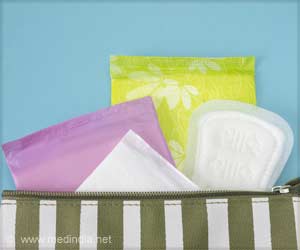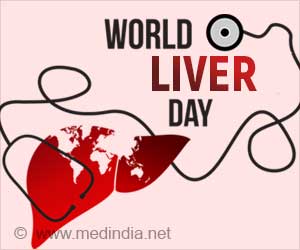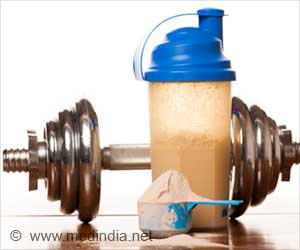- Menstruation is always a taboo in India because of the superstitions and myths involved in using a sanitary napkin due to lack of awareness, access, and affordability
- A new ambitious five-year //plan committed to grass-root change, the Niine Movement will be launched at the Menstrual Awareness Conclave taking place in Delhi on Menstrual Hygiene Awareness Day on 28th May 2018
- The main aim of the campaign is to bridge the gap between the 18% of menstruating women in India who use sanitary napkins, whereas the remaining 82% engage in unhygienic practices during their menstruation
Millions of women spread over the country still face significant hurdles during menstrual periods.
- Women are considered to be unclean and impure while menstruating and are thus prohibited from entering religious places such as temples or taking part in religious activities
- Menstruating women are also believed to be unhygienic and are not allowed to cook food or even touch certain food items such as pickles etc. for fear of contaminating them
- Many girls are forced to drop out of school in rural India because of menstruation
An ambitious five-year plan committed to grass-root change, the Niine Movement will be launched at the Menstrual Awareness Conclave taking place in Delhi on Menstrual Hygiene Awareness Day on 28th May 2018.
The Menstrual Awareness Conclave will convene renowned film personalities, academics, government officials, activists, NGOs, policymakers, business stalwarts, thought-leaders, including Akshay Kumar, to discuss and to bring into light the impact that stigma and taboos on menstruation have had on holding girls and women back for centuries.
Pad Man Helps Women in India
Pad Man, a movie based on the story "The Sanitary Man of Sacred Land" written by Twinkle Khanna was inspired by the life of Arunachalam Muruganantham, a Tamil Nadu-based social activist. He transformed the concept of menstrual hygiene in rural India by creating a low-cost sanitary napkin machine.
The 'Real' Pad Man
Muruganantham found his wife collecting dirty rags and newspapers to use during her menstrual cycle because commercial sanitary napkins were very expensive. This opened his eyes to invent low-cost sanitary napkins which can be hygienic, safe and affordable by the rural Indian women.
The mini-machines developed by Muruganantham can manufacture low-cost sanitary pads which have already been installed in 23 states among the 29 states of India. He is currently planning to extend the production of these machines globally.
Campaign for Use of Sanitary Napkins
Akshay Kumar, a famous woman empowerment advocate had boldly tackled the issue of the menstrual taboo through his award-winning film Pad Man. He also supports the Niine Movement as a continued champion of the cause of menstrual hygiene.
Akshay Kumar took to social media to support the #18to82 campaign with the message:
- Only 18% of Indian women use sanitary napkins vs 82% who use unhygienic means.
- I support the #NIINE Movement which breaks the taboos & encourages conversations on periods
"Open and unafraid conversations on menstruation are powerful as they help to break down taboos. I am honored to support the Niine Movement with the launch of the #18to82 campaign because menstrual hygiene is an urgent issue that we must resolve in India. Together we can ensure that every female has the right to manage her period safely and with dignity, and the Niine Movement can drive the social revolution that India needs to initiate change for an entire country. The empowerment of women is the empowerment of a nation," said Akshay Kumar.
There are nearly 355 million menstruating women in India, the second highest menstruating population globally, in which approximately only 18% of them currently use sanitary napkins whereas the remaining 82% of women often use unhygienic and unsafe alternatives such as old clothes, rags, hay and even ash.
As a consequence of the unwillingness to discuss on female menstruation, is the subsequent culture of silence and shame, which has left women with no choice but to take part in unsafe menstrual practices behind closed doors which frequently lead to urinary and reproductive tract infections, stress, anxiety, and even gender-based violence.
Objective of the Niine Movement
To achieve its vision, the Niine Movement’s theory of change adopts a three way approach by:
- Educating girls, women, boys, and men of good menstrual hygiene practices
- Enrolling citizens and existing menstrual hygiene product users in a supportive, taboo-free environment to create an open forum for discussion and consultation
- Enhancing the sanitation sector of India by providing the best quality menstrual hygiene products at suitable costs
Other Low-cost Biodegradable Sanitary Napkins Available in India
Nearly 88% of women in the village and rural areas of India use cloth, sand, ash, and rags during periods instead of sanitary napkins mainly due to lack of awareness, access, and affordability.
Improper disposal of these sanitary pads also causes soil, air or water contamination placing a serious health hazard.
"Anandi" India's First 100% Compostable and Disposable Pad
Anandi produces low-cost, biodegradable sanitary napkins using raw materials from indigenous agri-wastes and plant material like banana fiber, water hyacinth, and jute pulp. Chemicals, plastic, SAP or gel that are used in the production of certain sanitary napkins can cause health problems and contribute to either soil, air or water contamination.
Therefore, use of these low -cost biodegradable sanitary napkins can combat unhygienic menstruation practices.
Source-Medindia











